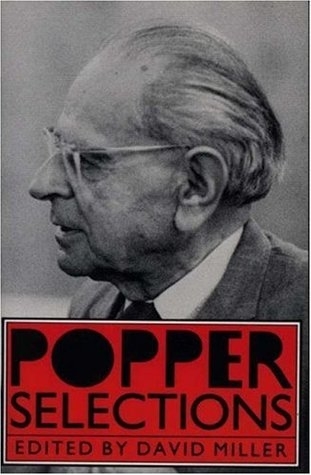
Patrick Collison Book Recommendations - 70 Important Books
Patrick Collison
If you should know one thing about Patrick Collison it is his enormous appetite for books. Patrick Collison book recommendations on his blog count up to 500 books.
We've made a thorough research and selected only important books that Patrick highlighted on his own bookshelf. He told that he often recommends books on Twitter and feels sorry for how haphazard book suggestion look, we've decided to change that and bring his favorite books into one beautiful list.
This list of Patrick Collison book recommendations is filtered for the most interesting books that left a lasting impression on Stripe CEO.
Take a look at 70 Patrick Collison favorite books!
See all
0
likes
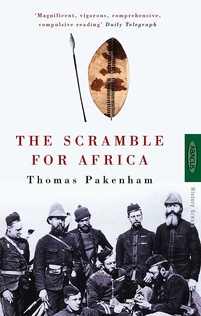
The Scramble for Africa
This is the first major revision of this key Seminar Study which was originally published in 1974. The book contrasts the Victorian image of Africa with what has been revealed by late twentieth-century research on the history of Africa. Professor Chamberlain uses case histories from Egypt to Zimbabwe to examine the European partition and conquest of the continent. For the new edition she brings up-to-date the historiography of the explanations offered for the phenomenon, Euro-centric or `peripheral', economic, political or strategic. Revised, reset and reissued in the larger format now established for the series, the new edition is sure to be welcomed by a new generation of students.
See all
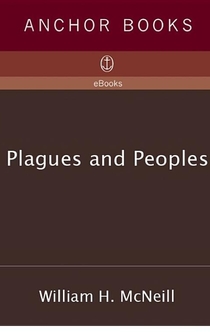
Plagues and Peoples
Upon its original publication, Plagues and Peoples was an immediate critical and popular success, offering a radically new interpretation of world history as seen through the extraordinary impact--political, demographic, ecological, and psychological--of disease on cultures. From the conquest of Mexico by smallpox as much as by the Spanish, to the bubonic plague in China, to the typhoid epidemic in Europe, the history of disease is the history of humankind. With the identification of AIDS in the early 1980s, another chapter has been added to this chronicle of events, which William McNeill explores in his new introduction to this updated editon.Thought-provoking, well-researched, and compulsively readable, Plagues and Peoples is that rare book that is as fascinating as it is scholarly, as intriguing as it is enlightening. "A brilliantly conceptualized and challenging achievement" (Kirkus Reviews), it is essential reading, offering a new perspective on human history.
See all

Longitude
Anyone alive in the eighteenth century would have known that "the longitude problem" was the thorniest scientific dilemma of the day-and had been for centuries. Lacking the ability to measure their longitude, sailors throughout the great ages of exploration had been literally lost at sea as soon as they lost sight of land. Thousands of lives and the increasing fortunes of nations hung on a resolution. One man, John Harrison, in complete opposition to the scientific community, dared to imagine a mechanical solution-a clock that would keep precise time at sea, something no clock had ever been able to do on land. Longitude is the dramatic human story of an epic scientific quest and of Harrison's forty-year obsession with building his perfect timekeeper, known today as the chronometer. Full of heroism and chicanery, it is also a fascinating brief history of astronomy, navigation, and clockmaking, and opens a new window on our world.
See all

The Chip
Barely fifty years ago a computer was a gargantuan, vastly expensive thing that only a handful of scientists had ever seen. The world’s brightest engineers were stymied in their quest to make these machines small and affordable until the solution finally came from two ingenious young Americans. Jack Kilby and Robert Noyce hit upon the stunning discovery that would make possible the silicon microchip, a work that would ultimately earn Kilby the Nobel Prize for physics in 2000. In this completely revised and updated edition of The Chip, T.R. Reid tells the gripping adventure story of their invention and of its growth into a global information industry. This is the story of how the digital age began.
See all

Technics and Civilization
Technics and Civilization first presented its compelling history of the machine and critical study of its effects on civilization in 1934—before television, the personal computer, and the Internet even appeared on our periphery. Drawing upon art, science, philosophy, and the history of culture, Lewis Mumford explained the origin of the machine age and traced its social results, asserting that the development of modern technology had its roots in the Middle Ages rather than the Industrial Revolution. Mumford sagely argued that it was the moral, economic, and political choices we made, not the machines that we used, that determined our then industrially driven economy. Equal parts powerful history and polemic criticism, Technics and Civilization was the first comprehensive attempt in English to portray the development of the machine age over the last thousand years—and to predict the pull the technological still holds over us today. “The questions posed in the first paragraph of Technics and Civilization still deserve our attention, nearly three quarters of a century after they were written.”—Journal of Technology and Culture
See all
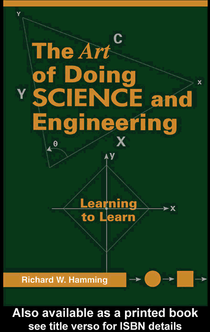
Art of Doing Science and Engineering
Highly effective thinking is an art that engineers and scientists can be taught to develop. By presenting actual experiences and analyzing them as they are described, the author conveys the developmental thought processes employed and shows a style of thinking that leads to successful results is something that can be learned. Along with spectacular successes, the author also conveys how failures contributed to shaping the thought processes. Provides the reader with a style of thinking that will enhance a person's ability to function as a problem-solver of complex technical issues. Consists of a collection of stories about the author's participation in significant discoveries, relating how those discoveries came about and, most importantly, provides analysis about the thought processes and reasoning that took place as the author and his associates progressed through engineering problems.
See all

Structure and Interpretation of Classical Mechanics
The new edition of a classic text that concentrates on developing general methods for studying the behavior of classical systems, with extensive use of computation.We now know that there is much more to classical mechanics than previously suspected. Derivations of the equations of motion, the focus of traditional presentations of mechanics, are just the beginning. This innovative textbook, now in its second edition, concentrates on developing general methods for studying the behavior of classical systems, whether or not they have a symbolic solution. It focuses on the phenomenon of motion and makes extensive use of computer simulation in its explorations of the topic. It weaves recent discoveries in nonlinear dynamics throughout the text, rather than presenting them as an afterthought. Explorations of phenomena such as the transition to chaos, nonlinear resonances, and resonance overlap to help the student develop appropriate analytic tools for understanding. The book uses computation to constrain notation, to capture and formalize methods, and for simulation and symbolic analysis. The requirement that the computer be able to interpret any expression provides the student with strict and immediate feedback about whether an expression is correctly formulated. This second edition has been updated throughout, with revisions that reflect insights gained by the authors from using the text every year at MIT. In addition, because of substantial software improvements, this edition provides algebraic proofs of more generality than those in the previous edition; this improvement permeates the new edition.
See all

Feynman Lectures On Computation
When, in 1984?86, Richard P. Feynman gave his famous course on computation at the California Institute of Technology, he asked Tony Hey to adapt his lecture notes into a book. Although led by Feynman, the course also featured, as occasional guest speakers, some of the most brilliant men in science at that time, including Marvin Minsky, Charles Bennett, and John Hopfield. Although the lectures are now thirteen years old, most of the material is timeless and presents a ?Feynmanesque? overview of many standard and some not-so-standard topics in computer science such as reversible logic gates and quantum computers.
See all
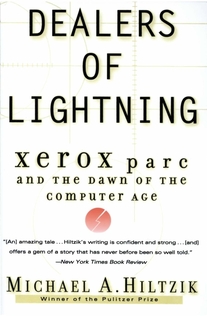
Dealers of Lightning
In the bestselling tradition of The Soul of a New Machine, Dealers of Lightning is a fascinating journey of intellectual creation. In the 1970s and '80s, Xerox Corporation brought together a brain-trust of engineering geniuses, a group of computer eccentrics dubbed PARC. This brilliant group created several monumental innovations that triggered a technological revolution, including the first personal computer, the laser printer, and the graphical interface (one of the main precursors of the Internet), only to see these breakthroughs rejected by the corporation. Yet, instead of giving up, these determined inventors turned their ideas into empires that radically altered contemporary life and changed the world.Based on extensive interviews with the scientists, engineers, administrators, and executives who lived the story, this riveting chronicle details PARC's humble beginnings through its triumph as a hothouse for ideas, and shows why Xerox was never able to grasp, and ultimately exploit, the cutting-edge innovations PARC delivered. Dealers of Lightning offers an unprecedented look at the ideas, the inventions, and the individuals that propelled Xerox PARC to the frontier of technohistoiy--and the corporate machinations that almost prevented it from achieving greatness.
See all

Dancing in the Glory of Monsters
A "tremendous," "intrepid" history of the devastating war in the heart of Africa's Congo, with first-hand accounts of the continent's worst conflict in modern times. At the heart of Africa is the Congo, a country the size of Western Europe, bordering nine other nations, that since 1996 has been wracked by a brutal war in which millions have died. In Dancing in the Glory of Monsters, renowned political activist and researcher Jason K. Stearns has written a compelling and deeply-reported narrative of how Congo became a failed state that collapsed into a war of retaliatory massacres. Stearns brilliantly describes the key perpetrators, many of whom he met personally, and highlights the nature of the political system that brought these people to power, as well as the moral decisions with which the war confronted them. Now updated with a new introduction, Dancing in the Glory of Monsters tells the full story of Africa's Great War.
See all
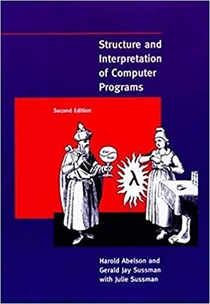
Structure and Interpretation of Computer Programs
Structure and Interpretation of Computer Programs has had a dramatic impact on computer science curricula over the past decade. This long-awaited revision contains changes throughout the text.

The Nature of Mathematical Modeling
This book first covers exact and approximate analytical techniques (ordinary differential and difference equations, partial differential equations, variational principles, stochastic processes); numerical methods (finite differences for ODE's and PDE's, finite elements, cellular automata); model inference based on observations (function fitting, data transforms, network architectures, search techniques, density estimation); as well as the special role of time in modeling (filtering and state estimation, hidden Markov processes, linear and nonlinear time series). Each of the topics in the book would be the worthy subject of a dedicated text, but only by presenting the material in this way is it possible to make so much material accessible to so many people. Each chapter presents a concise summary of the core results in an area, providing an orientation to what they can (and cannot) do, enough background to use them to solve typical problems, and pointers to access the literature for particular applications.
See all

Amusing Ourselves to Death
What happens when media and politics become forms of entertainment? As our world begins to look more and more like Orwell's 1984, Neil's Postman's essential guide to the modern media is more relevant than ever."It's unlikely that Trump has ever read Amusing Ourselves to Death, but his ascent would not have surprised Postman.” -CNNOriginally published in 1985, Neil Postman’s groundbreaking polemic about the corrosive effects of television on our politics and public discourse has been hailed as a twenty-first-century book published in the twentieth century. Now, with television joined by more sophisticated electronic media—from the Internet to cell phones to DVDs—it has taken on even greater significance. Amusing Ourselves to Death is a prophetic look at what happens when politics, journalism, education, and even religion become subject to the demands of entertainment. It is also a blueprint for regaining control of our media, so that they can serve our highest goals.“A brilliant, powerful, and important book. This is an indictment that Postman has laid down and, so far as I can see, an irrefutable one.” –Jonathan Yardley, The Washington Post Book World
See all
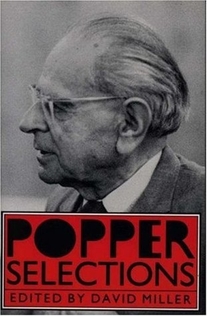
Popper Selections
These excerpts from the writings of Sir Karl Popper are an outstanding introduction to one of the most controversial of living philosophers, known especially for his devastating criticisms of Plato and Marx and for his uncompromising rejection of inductive reasoning. David Miller, a leading expositor and critic of Popper's work, has chosen thirty selections that illustrate the profundity and originality of his ideas and their applicability to current intellectual and social problems. Miller's introduction demonstrates the remarkable unity of Popper's thought and briefly describes his philosophy of critical rationalism, a philosophy that is distinctive in its emphasis on the way in which we learn through the making and correcting of mistakes. Popper has relentlessly challenged both the authority and the appeal to authority of the most fashionable philosophies of our time. This book of selections from his nontechnical writings on the theory of knowledge, the philosophy of science, metaphysics, and social philosophy is imbued with his emphasis on the role and by reason in exposing and eliminating the errors among them.-- "The Washington Post"
See all

The City in History
The city's development from ancient times to the modern age. Winner of the National Book Award. “One of the major works of scholarship of the twentieth century” (Christian Science Monitor). Index; illustrations.

Justice as Fairness
This book originated as lectures for a course on political philosophy that Rawls taught regularly at Harvard in the 1980s. In time the lectures became a restatement of his theory of justice as fairness, revised in light of his more recent papers and his treatise Political Liberalism (1993). As Rawls writes in the preface, the restatement presents "in one place an account of justice as fairness as I now see it, drawing on all [my previous] works." He offers a broad overview of his main lines of thought and also explores specific issues never before addressed in any of his writings. Rawls is well aware that since the publication of A Theory of Justice in 1971, American society has moved farther away from the idea of justice as fairness. Yet his ideas retain their power and relevance to debates in a pluralistic society about the meaning and theoretical viability of liberalism. This book demonstrates that moral clarity can be achieved even when a collective commitment to justice is uncertain.
See all
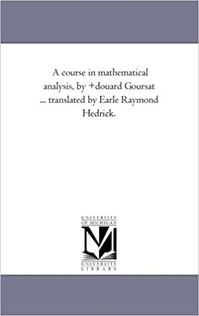
A Course in Mathematical Analysis
The three volumes of A Course in Mathematical Analysis provide a full and detailed account of all those elements of real and complex analysis that an undergraduate mathematics student can expect to encounter in their first two or three years of study. Containing hundreds of exercises, examples and applications, these books will become an invaluable resource for both students and teachers. Volume I focuses on the analysis of real-valued functions of a real variable. Volume II goes on to consider metric and topological spaces. This third volume covers complex analysis and the theory of measure and integration.
See all

Expert Political Judgment
The intelligence failures surrounding the invasion of Iraq dramatically illustrate the necessity of developing standards for evaluating expert opinion. This book fills that need. Here, Philip E. Tetlock explores what constitutes good judgment in predicting future events, and looks at why experts are often wrong in their forecasts. Tetlock first discusses arguments about whether the world is too complex for people to find the tools to understand political phenomena, let alone predict the future. He evaluates predictions from experts in different fields, comparing them to predictions by well-informed laity or those based on simple extrapolation from current trends. He goes on to analyze which styles of thinking are more successful in forecasting. Classifying thinking styles using Isaiah Berlin's prototypes of the fox and the hedgehog, Tetlock contends that the fox--the thinker who knows many little things, draws from an eclectic array of traditions, and is better able to improvise in response to changing events--is more successful in predicting the future than the hedgehog, who knows one big thing, toils devotedly within one tradition, and imposes formulaic solutions on ill-defined problems. He notes a perversely inverse relationship between the best scientific indicators of good judgement and the qualities that the media most prizes in pundits--the single-minded determination required to prevail in ideological combat. Clearly written and impeccably researched, the book fills a huge void in the literature on evaluating expert opinion. It will appeal across many academic disciplines as well as to corporations seeking to develop standards for judging expert decision-making.
See all

Stuff Matters
A New York Times Bestseller An eye-opening adventure deep inside the everyday materials that surround us, packed with surprising stories and fascinating science Why is glass see-through? What makes elastic stretchy? Why does a paper clip bend? Why does any material look and behave the way it does? These are the sorts of questions that Mark Miodownik is constantly asking himself. A globally-renowned materials scientist, Miodownik has spent his life exploring objects as ordinary as an envelope and as unexpected as concrete cloth, uncovering the fascinating secrets that hold together our physical world. In Stuff Matters, Miodownik entertainingly examines the materials he encounters in a typical morning, from the steel in his razor and the graphite in his pencil to the foam in his sneakers and the concrete in a nearby skyscraper. He offers a compendium of the most astounding histories and marvelous scientific breakthroughs in the material world, including: The imprisoned alchemist who saved himself from execution by creating the first European porcelain. The hidden gem of the Milky Way, a planet five times the size of Earth, made entirely of diamond. Graphene, the thinnest, strongest, stiffest material in existence--only a single atom thick--that could be used to make entire buildings sensitive to touch. From the teacup to the jet engine, the silicon chip to the paper clip, the plastic in our appliances to the elastic in our underpants, our lives are overflowing with materials. Full of enthralling tales of the miracles of engineering that permeate our lives, Stuff Matters will make you see stuff in a whole new way.
See all

Matterhorn
Intense, powerful, and compelling, Matterhorn is an epic war novel in the tradition of Norman Mailer's The Naked and the Dead and James Jones's The Thin Red Line. It is the timeless story of a young Marine lieutenant, Waino Mellas, and his comrades in Bravo Company, who are dropped into the mountain jungle of Vietnam as boys and forced to fight their way into manhood. Standing in their way are not merely the North Vietnamese but also monsoon rain and mud, leeches and tigers, disease and malnutrition. Almost as daunting, it turns out, are the obstacles they discover between each other: racial tension, competing ambitions, and duplicitous superior officers. But when the company finds itself surrounded and outnumbered by a massive enemy regiment, the Marines are thrust into the raw and all-consuming terror of combat. The experience will change them forever. Written by a highly decorated Marine veteran over the course of thirty years, Matterhorn is a spellbinding and unforgettable novel that brings to life an entire world—both its horrors and its thrills—and seems destined to become a classic of combat literature.
See all
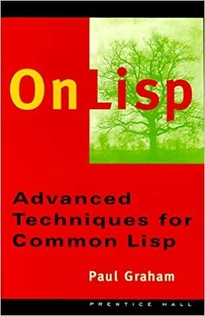
On Lisp
Starting in the 1980s, Lisp began to be used in several large systems, including Emacs, Autocad, and Interleaf. On Lisp explains the reasons behind Lisp's growing popularity as a mainstream programming language. On Lisp is a comprehensive study of advanced Lisp techniques, with bottom-up programming as the unifying theme. It gives the first complete description of macros and macro applications. The book also covers important subjects related to bottom-up programming, including functional programming, rapid prototyping, interactive development, and embedded languages. The final chapter takes a deeper look at object-oriented programming than previous Lisp books, showing the step-by-step construction of a working model of the Common Lisp Object System (CLOS). As well as an indispensable reference, On Lisp is a source of software. Its examples form a library of functions and macros that readers will be able to use in their own Lisp programs.
See all

I Didn't Do It for You
Scarred by decades of conflict and occupation, the craggy African nation of Eritrea has weathered the world's longest-running guerrilla war. The dogged determination that secured victory against Ethiopia, its giant neighbor, is woven into the national psyche, the product of cynical foreign interventions. Fascist Italy wanted Eritrea as the springboard for a new, racially pure Roman empire; Britain sold off its industry for scrap; the United States needed a base for its state-of-the-art spy station; and the Soviet Union used it as a pawn in a proxy war.In I Didn't Do It for You, Michela Wrong reveals the breathtaking abuses this tiny nation has suffered and, with a sharp eye for detail and a taste for the incongruous, tells the story of colonialism itself and how international power politics can play havoc with a country's destiny.
See all

Postcards from Tomorrow Square
“Americans need not be hostile toward China's rise, but they should be wary about its eventual effects. The United States is the only nation with the scale and power to try to set the terms of its interaction with China rather than just succumb. So starting now, Americans need to consider the economic, environmental, political, and social goals they care about defending as Chinese influence grows.” —from “China Makes, the World Takes”Since December 2006, The Atlantic Magazine's James Fallows has been writing some of the most discerning accounts of the economic and political transformation occurring in China. The ten essays collected here cover a wide-range of topics: from visionary tycoons and TV-battling entrepreneurs, to environmental pollution and how China subsidizes our economy. Fallows expertly and lucidly explains the economic, political, social, and cultural forces at work turning China into a world superpower at breakneck speed. This eye-opening and cautionary account is essential reading for all concerned not only with China's but America's future role in the world.
See all

Metamagical Themas
Hofstadter's collection of quirky essays is unified by its primary concern: to examine the way people perceive and think.







